Staying Fit

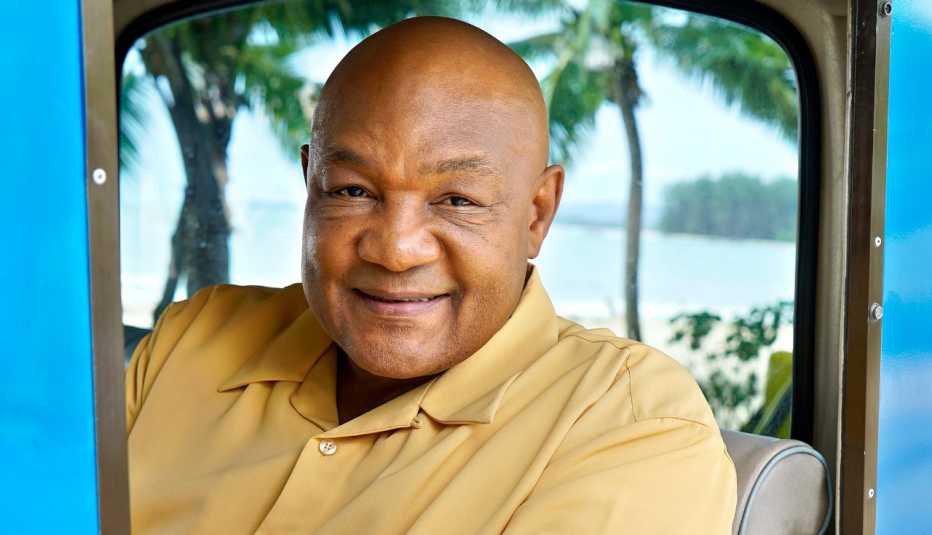
I guess it really started when I was about 16. A friend and I joined the Job Corps program, where I first learned to box. We went to Grants Pass, Oregon, and worked up in those hills for six months. I cried because it was so tough. I didn't want to tell anyone that I missed my mom and wanted to go home—partly because that would have meant hanging out with my old buddies on Lyons Avenue in Houston, and no good would come from that. So, I said to myself, George, you gotta just keep yourself busy. You gotta keep going.
After that, boxing became the first time in my life I had true goals for myself. I wanted an Olympic gold medal and I got it. I walked around with that medal hanging around my neck for months and totally wore the color off it. It was like proof I had become something. I expected it would be one high after another from there, and it was: I left the Olympics and three and a half years later became boxing's number one contender. Never lost a match. Heavyweight champion of the world! But then came Africa. October, 30, 1974. The “Rumble in the Jungle.” Fighting Muhammad Ali. I lost the fight. For me, it was utter devastation. How could I do this? How could that happen to me? I didn't just lose the title; I felt I lost part of myself.


AARP Membership— $12 for your first year when you sign up for Automatic Renewal
Get instant access to members-only products and hundreds of discounts, a free second membership, and a subscription to AARP the Magazine.

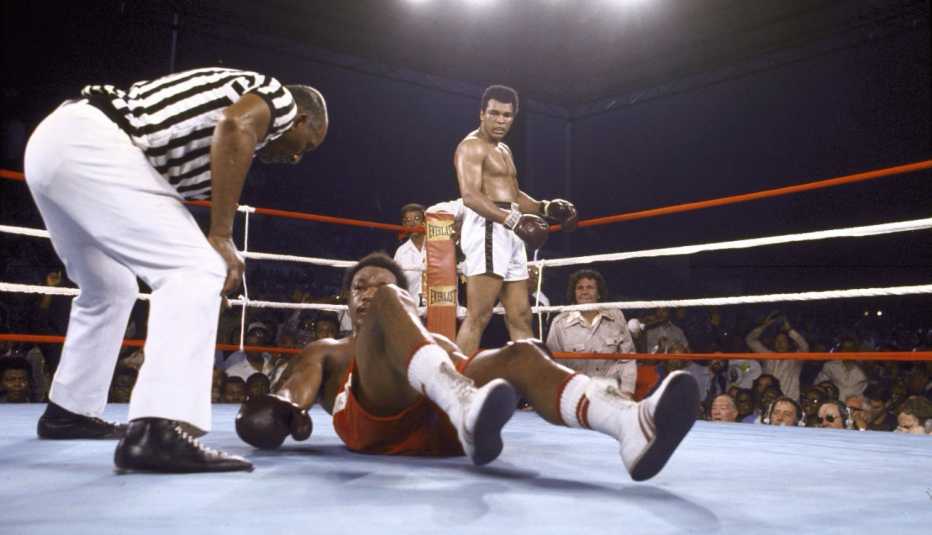
The Fall: Undefeated as an Olympian and heavyweight champ, Foreman got clobbered by Muhammad Ali, burned through his prize winnings and lost his fighting form.
The Comeback: After a decade adrift, he regained the crown, the muscle and the savvy to become George Foreman, grill-ionaire. Estimated net worth: $300 million.
I left boxing a few years later and became an evangelist. I had to reacquaint myself with how to be a regular person. I thought people would only love you if you had Lincoln Continental cars and custom suits. But after about three years in retirement, I didn't have any of that. I was just a big guy. For 10 years, I was an outcast. I didn't look like a champ. People didn't want me in their homes because all I talked about was religion. The only way to keep friends was by going fishing with them and cooking it up. I learned to barbecue. Oh, they'd lick their fingers and ask for some more. People liked me again, not for George Foreman stuff but for the food I was making.
Ten years out of boxing, and I decided to give it one more shot. I made a comeback and not only recaptured the heavyweight title—a miracle—but I became the toast of Madison Avenue. I did commercials for McDonald's, RC Cola, Doritos, Meineke. I did them all until a friend said, “George, you're making all these companies rich and famous. Why don't you do your own product?” One of the products I found was like a waffle maker sandwich grill that someone wanted me to do a joint venture on. I started using it. It really worked. The most I ever thought I'd sell was maybe 16, to my aunts and my mom and family members. I'd be lying if I said I knew what was coming: We sold that thing [the George Foreman Grill] to over 100 million people.





























































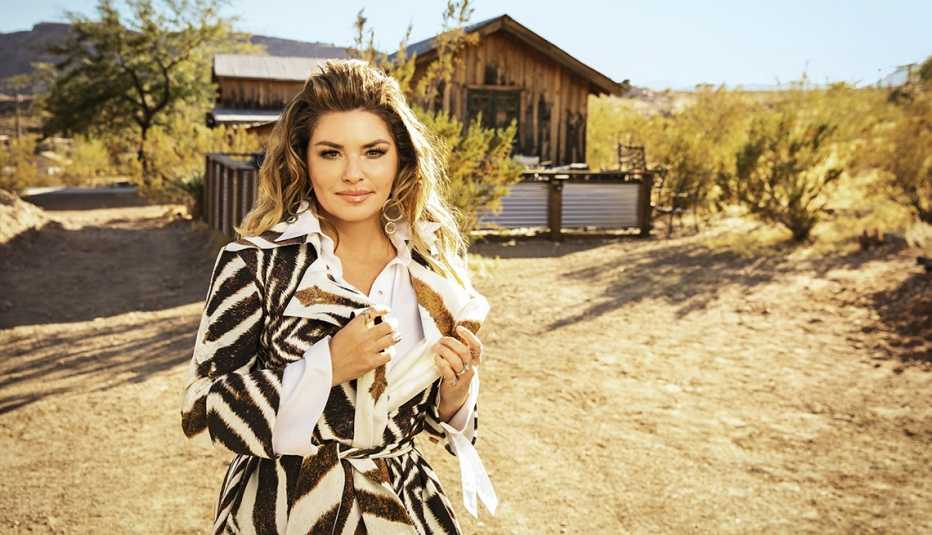


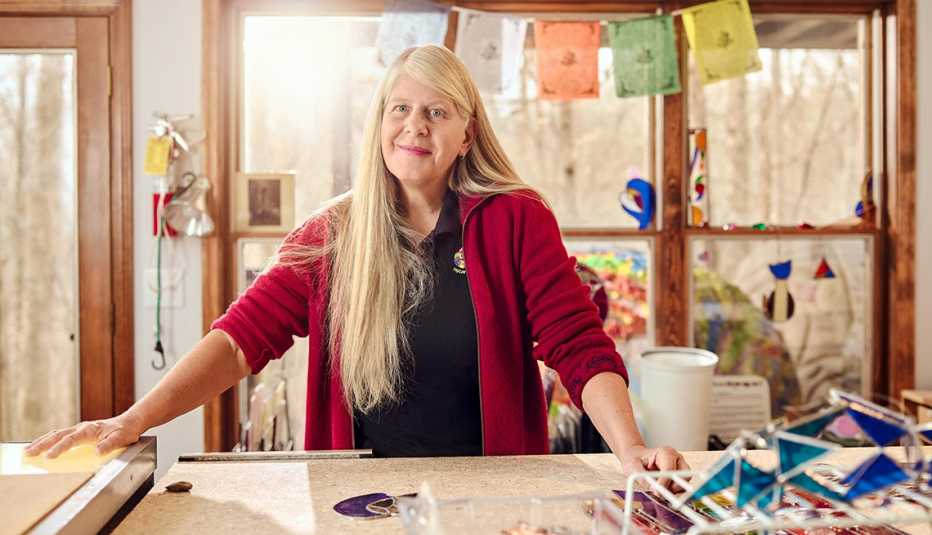
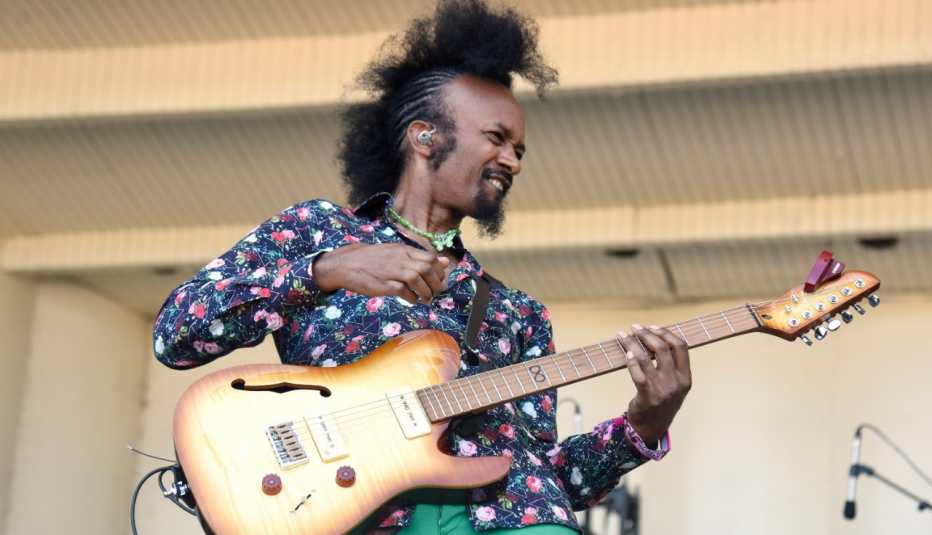





More From AARP
’90s Radio Host Doubles Income in His Second Act as a Realtor
Jimmy Baron took a chance and found a new passion in luxury real estateHarvard Researcher’s 8-Year Quest to Regain Her Health After a Massive Stroke
Jill Bolte Taylor's story of resilience now serves as an inspiration for others